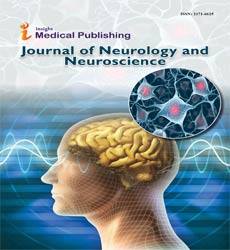Abstract
Interaction between brain and heart in cardiac surgery patients
Postoperative cognitive dysfunction (POCD) refers to impairment in one or more cognitive functions including memory, and learning, attention, orientation, decision making that affect every day functioning and quality of life, following surgery. It is more evident after cardiac rather than non-cardiac surgery and the use of extracorporeal circulation (ECC) in heart surgery enhances this phenomenon. We examined 60 patients with coronary artery disease, (Group A- patients) who underwent coronary artery bypass grafting and compared them with 60 healthy adults (Group B- healthy) with a series of neuropsychological tests before surgery, prior to discharge and at 3-month follow-up. The assessment included measures of attention and concentration, verbal working memory, executive functioning, learning, short-term and long-term memory, and visuospatial perception, speed of information processing, anxiety, depression and quality of life. Despite the similar preoperative performance of both groups, Group B outperformed those on Group A on most of the neuropsychological domains at immediate follow-up: verbal working memory(p=0.001), short-term (p=0.008) and long-term memory (p=0.000), executive functioning (p=0.04), attention and concentration (p=0.000), and visuospatial perception (p=0.03). In contrast, Group A showed similar performance on most of the neuropsychological domains, 3 months after surgery. Who have impaired cognitive functions immediately after surgery compared to healthy? This may be of particular importance for the patients who undergo cardiac surgery.
Author(s):
Kalliopi Megari
Abstract | PDF
Share this

Abstracted/Indexed in
- Google Scholar
- Open J Gate
- Genamics JournalSeek
- The Global Impact Factor (GIF)
- China National Knowledge Infrastructure (CNKI)
- Directory of Research Journal Indexing (DRJI)
- WorldCat
- Proquest Summons
- Scientific Journal Impact Factor
- Secret Search Engine Labs
- Euro Pub
Open Access Journals
- Aquaculture & Veterinary Science
- Chemistry & Chemical Sciences
- Clinical Sciences
- Engineering
- General Science
- Genetics & Molecular Biology
- Health Care & Nursing
- Immunology & Microbiology
- Materials Science
- Mathematics & Physics
- Medical Sciences
- Neurology & Psychiatry
- Oncology & Cancer Science
- Pharmaceutical Sciences

